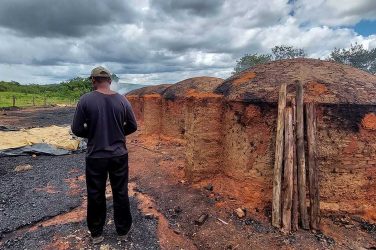
While geographically located in the "western" hemisphere, Brazil
does not
fully qualify as a
western nation. The terms
"west" or "westernized" have
become euphemisms for "civilized",
"white"
and "English-speaking." It is
time the world learns
that America is not a country, but an entire continent.
by:
Alan P.
Marcus
Modernity has provided the general public in this so-called "globalized" world, with mass media, television,
and with the perpetuation of ambiguous terminology disseminated to the general public. Certain terminology has
created a universal "blinding" effect on political, geographical and cultural issues. For example the terms "west" or
"westernized" and "America" in modern contemporary parlance have made headway into popular and scholarly
culture all over the world.
What do these terms really mean? If one deconstructs the concept of "west", one should ask: "west" of
what? Why is the "Middle East" not called the "Middle West", or why is the "Near East" not called "Near West", since
this region would also be "west" of India, China or Japan? Cultural relativism is the obvious answer. That is; the view
of contemporary geography, and popular culture "sees" the rest of the world relatively through the lens of a
geographic Northern America or Great Britain. But more importantly and more disturbingly, the terms "west" or
"westernized" have become in popular parlance, euphemisms for "civilized", "white" and "English-speaking", and the continent
of "America", translates to a single country.
Take for example, a comment such as: "Rio de Janeiro is actually a very `westernized’
city". In this context, what exactly does "westernized city" mean? Does this imply that Rio was previously thought to be
"non-westernized", and if so, again what does
that mean? The need for the qualification "westernized", points to an interesting
phenomenon with a deeper significance. Logic illustrates that this qualification is equivalent to saying, for example:
"John Smith is black, but actually very
honest".
The implication here is distressing and ethnocentric, since the reverse denotes that everything that is
not "western" or "westernized" is euphemistically "non-English-speaking" and therefore "uncivilized" or "wild" and thus
pertaining to an imaginary world. This imaginary world does not exist in
reality; it is only a part of popular culture that
exists in movies, perpetuated by the mass media, and in popular and science fiction, that is; a textbook case of a
stereotype. When the word "westernized" is used to mean "civilized" the deconstruction of such semantics is in
order, particularly since these terms are entirely relative and subjective terms.
The myth of the "west" is perpetuated by the semantics of the general public and of scholarly culture,
accustomed to hearing that anyone who is perceived as "non-white" or non-English-speaking is automatically considered
"non-western". Brazil is a perfect example of these misconstrued terms.
Brazil is geographically located in the American continent, more precisely "South America", therefore
located in the so-called "western" hemisphere. But that still does not seem to fully qualify Brazil to fit the definition of "west".
The popular and scholarly imagery of Brazil is construed within the realm of a "non-western-world", also
conveying the idea of an imaginary population that is very much imbued in the gross stereotype of the
"rain-forest-Amerindian-uneducated-Spanish-speaking-rural-immigrant". Nothing far from the truth could describe a typical
Portuguese-speaking-urban-middle-class Brazilian immigrant found in Massachusetts or New York City.
The appropriation of the word "America" used to refer to the country United States of America, has also
become part of popular culture and in serious need of examination. The interchangeable use of the words "America" and
"USA," is ubiquitous and can be heard all over the world. This appropriation carries a loaded political and cultural
subtext. Geographically Brazil is actually larger than continental USA, and ought to put political size into perspective.
However, this appropriation also leads to subconscious ramifications and conveys a false sense of entitlement of size
equated to political and cultural power.
In addition, and more importantly, America is not a country: it is an entire
continent. The United Stated of America, Canada and Mexico are part of North America in the northern part of the Americas. The American
continent comprises a plurality of nations, languages, cultures and ethnicities, and to appropriate the term "America"
entirely as a single country is geographically inaccurate and wrong.
The terms "west" or "westernized" and "America", represent inaccurate and monolithic ways of perceiving
and looking at the world, and are grossly misused terms perpetuated by popular and scholarly culture.
Alan P. Marcus (Master’s of Science in Human Geography, in progress) is a Brazilian living in the USA. He
has also written other articles on Brazilian issues on identity, "race", ethnicity, and animal ethics for
Brazzil magazine, available online: www.brazzil.com.
E-mail contact:
amarcus@geo.umass.edu




